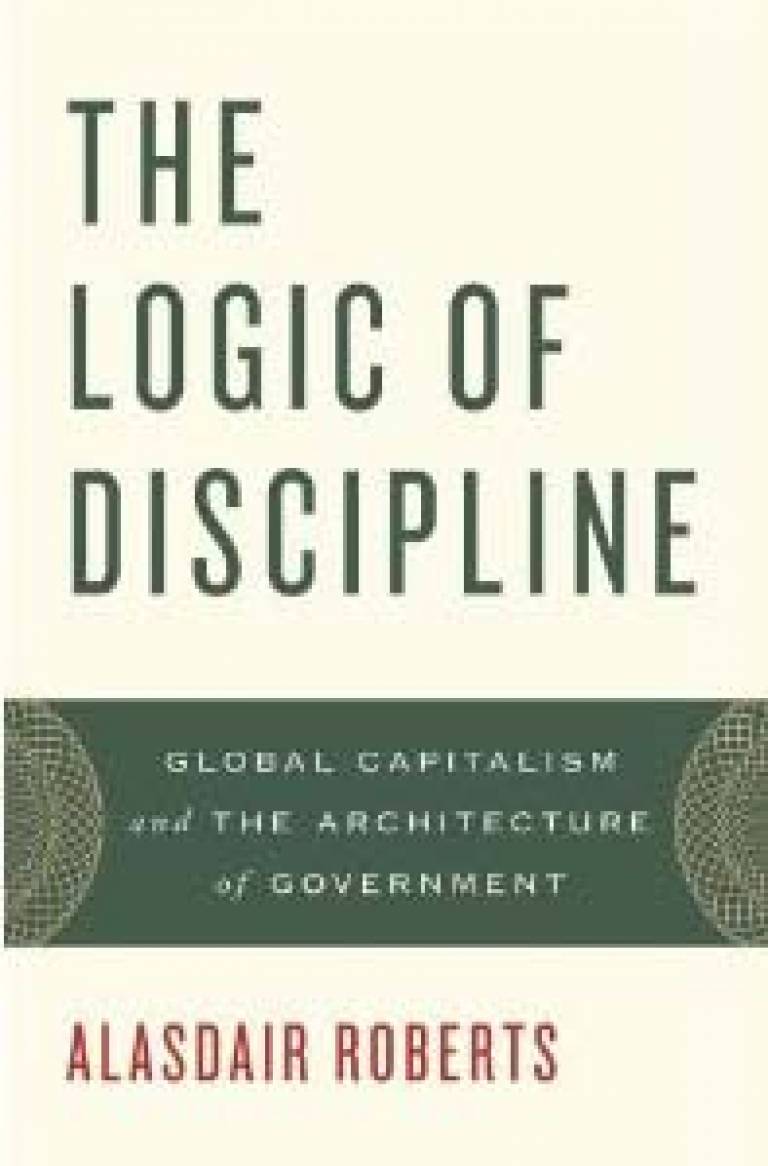The Logic of Discipline
3 December 2010

New book by Prof Alasdair Roberts
The era of economic liberalization, spanning 1978 to 2008, is often
regarded as a period in which government was simply dismantled. In
fact, government was reconstructed to meet the needs of a globalized
economy. Central banking, fiscal control, tax collection, regulation,
port and airport management, infrastructure development-in all of these
areas, radical reforms were made to the architecture of government.
A
common philosophy shaped all of these reforms: the logic of discipline.
It was premised on deep skepticism about the ability of democratic
processes to make sensible policy choices. It sought to impose
constraints on elected officials and citizens, often by shifting power
to technocrat-guardians who were shielded from political influence. It
placed great faith in the power of legal changes--new laws, treaties,
and contracts--to produce significant alterations in the performance of
governmental systems. Even before the global economic crisis of
2007-2009, the logic of discipline was under assault. Faced with many
failed reform projects, advocates of discipline realized that they had
underestimated the complexity of governmental change. Opponents of
discipline emphasized the damage to democratic values that followed
from the empowerment of new groups of technocrat-guardians.
The
financial crisis did further damage to the logic of discipline, as
governments modified their attitudes about central bank independence
and fiscal control, and global financial and trade flows declined. It
was the market that now appeared to behave myopically and
erratically--and which now insisted that governments should abandon
precepts about the role of government that it had once insisted were
inviolable.
A sweeping account of neoliberal governmental
restructuring across the world, The Logic of Discipline offers a
powerful analysis of how this undemocratic model is unraveling in the
face of a monumental--and ongoing--failure of the market.
Review in the Times Literary Supplement
 Close
Close


